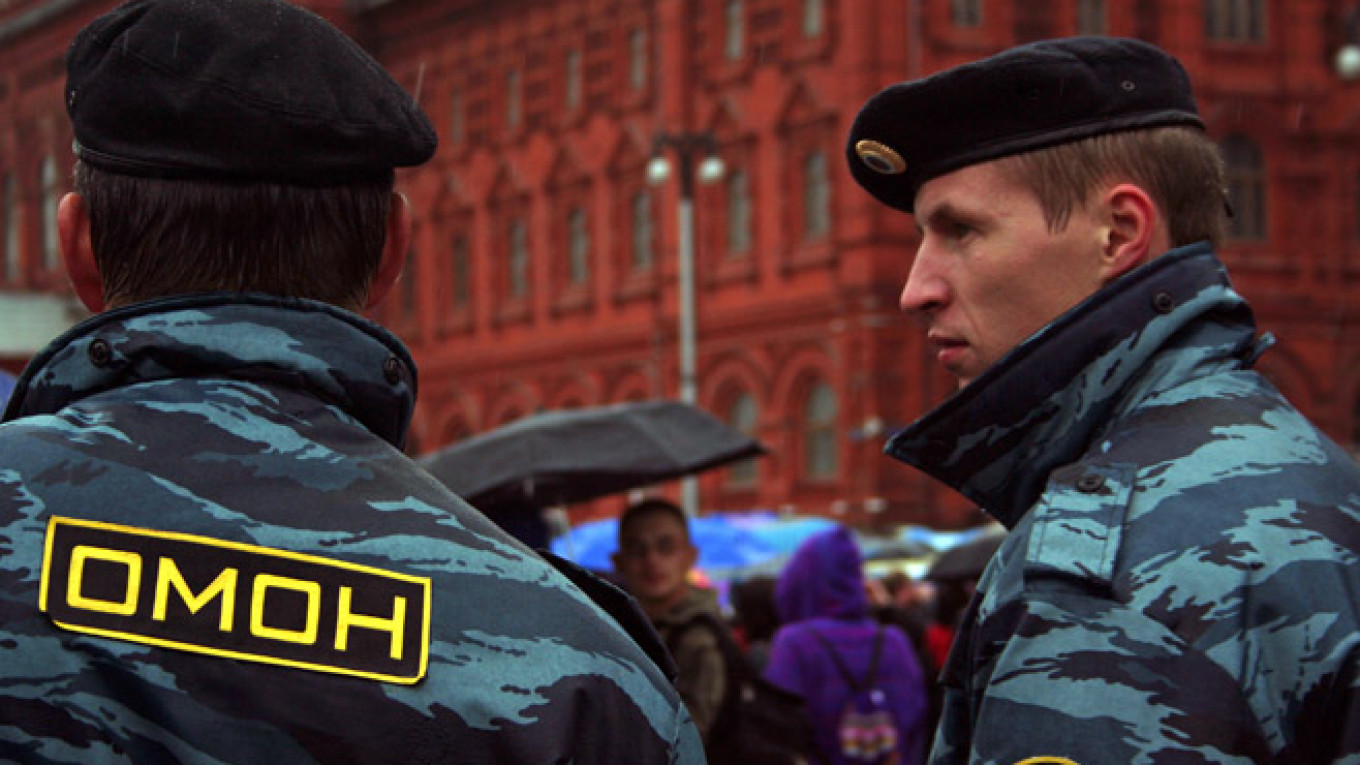И.о.: acting
Russians use a lot of abbreviations — they have to if they want to do anything but talk. Even simple concepts take up a lot of letters. For example, in Russian the word "acting" as in "acting department head" is исполняющий обязанности (literally "carrying out the functions of"). Wouldn't you cut that down to и.о.? Think of how much time you'd save — at least 4 seconds every time you said it. That could save you up to a minute a week, or 52 minutes a year — enough time to fall in love, or fix the leaking toilet, or figure out how to balance the family budget with double-digit inflation.
There are several ways to form abbreviations in Russian. You can mash together syllables from different words or combine syllables and whole words. This method produced all those wonderful names of Soviet businesses and factories that I recall as one big plant called Промпишмашстрой. Today this is a common way of dealing with the long names of governmental ministries like минфин (министерство финансов — Finance Ministry) or минобороны (министерство обороны — Defense Ministry).
Another way to form abbreviations is to combine the first letters of words. Some of these abbreviations are pronounced as if they were words — like вуз, which stands for высшее учебное заведение (school of higher education). The rule seems to be "pronounced like a noun, acts like a noun" — that is, abbreviations like вуз are declined: Министерство опубликовало список из более чем тысячи вузов, которым было рекомендовано повысить свою эффективность. (The ministry published a list of more than 1,000 schools of higher education that they recommended raise their effectiveness.)
Some abbreviations are combinations of initials and syllables, like ГУЛаг (GULag), which stands for Главное управление лагерей и мест заключения. (Main Directorate of Camps and Places of Imprisonment.) Лукойл (or ЛУКойл — LUKoil) is also a compilation of initials and a word, this time "oil" transliterated into Russian. The ЛУК part is the initials of three cities in Khanty-Mansiisk where the company had its first oil refineries: Лангепас, Урай and Когалым.
Some abbreviations have become so common you forget that they are abbreviations. Спецназ is really подразделение специального назначения (special forces unit), but has already generated the word спецназовец (a special forces soldier).
The Russian workplace is abbreviation heaven — or hell, if you don't speak in syllables and initials. Your boss is probably called ГД or гендиректор (генеральный директор — general director). Гендиректор ТАСС расскажет о новой стратегии агентства. (The general director of TASS will talk about the agency's new strategy.) There may also be ЗГД or замгендиректор (заместитель генерального директора — deputy general director). Every office has the главбух, which can be reconstructed as главный бухгалтер (chief accountant), and a few зам главбуха (deputy chief accountants).
By the way, замs are everywhere. Where there is полпред (полномочный представитель — ambassador or envoy), there is sure to be замполпред (deputy envoy). In the office next to the главред (главный редактор — editor in chief) is the замглавред (заместитель главного редактора — deputy editor in chief, sometimes called managing editor). Где комната зама? (Where is the deputy's office?)
The whole point of abbreviations is brevity, but the folks at the site sokr.ru — the go-to source for all things abbreviated — have found a "short form" institute name that is 55 letters long: НИИОМТПЛАБОПАРМБЕТЖЕЛБЕТРАБСБОРМОНИМОНКОНОТДТЕХСТРОМОНТ.
Now that puts Пишпошстроймаш to shame.
Michele A. Berdy, a Moscow-based translator and interpreter, is author of "The Russian Word's Worth" (Glas), a collection of her columns.
A Message from The Moscow Times:
Dear readers,
We are facing unprecedented challenges. Russia's Prosecutor General's Office has designated The Moscow Times as an "undesirable" organization, criminalizing our work and putting our staff at risk of prosecution. This follows our earlier unjust labeling as a "foreign agent."
These actions are direct attempts to silence independent journalism in Russia. The authorities claim our work "discredits the decisions of the Russian leadership." We see things differently: we strive to provide accurate, unbiased reporting on Russia.
We, the journalists of The Moscow Times, refuse to be silenced. But to continue our work, we need your help.
Your support, no matter how small, makes a world of difference. If you can, please support us monthly starting from just $2. It's quick to set up, and every contribution makes a significant impact.
By supporting The Moscow Times, you're defending open, independent journalism in the face of repression. Thank you for standing with us.
Remind me later.








